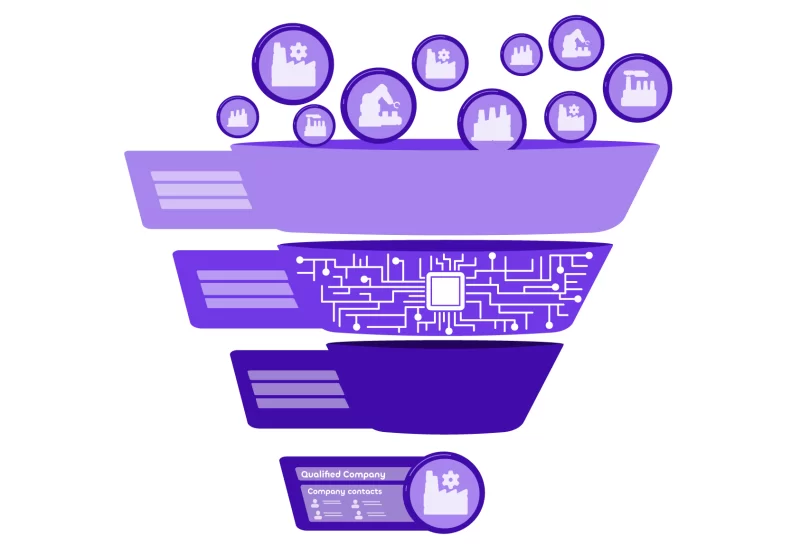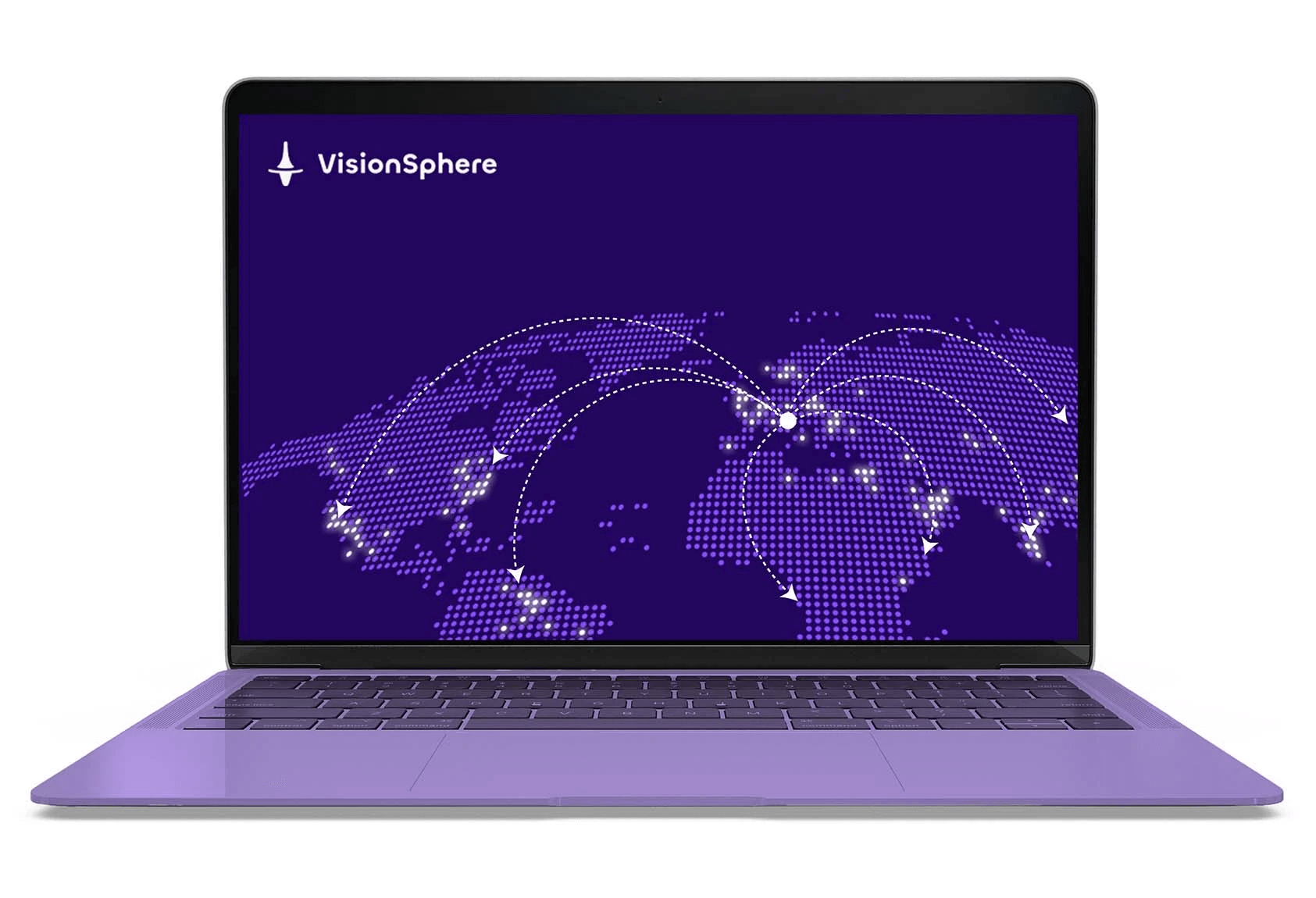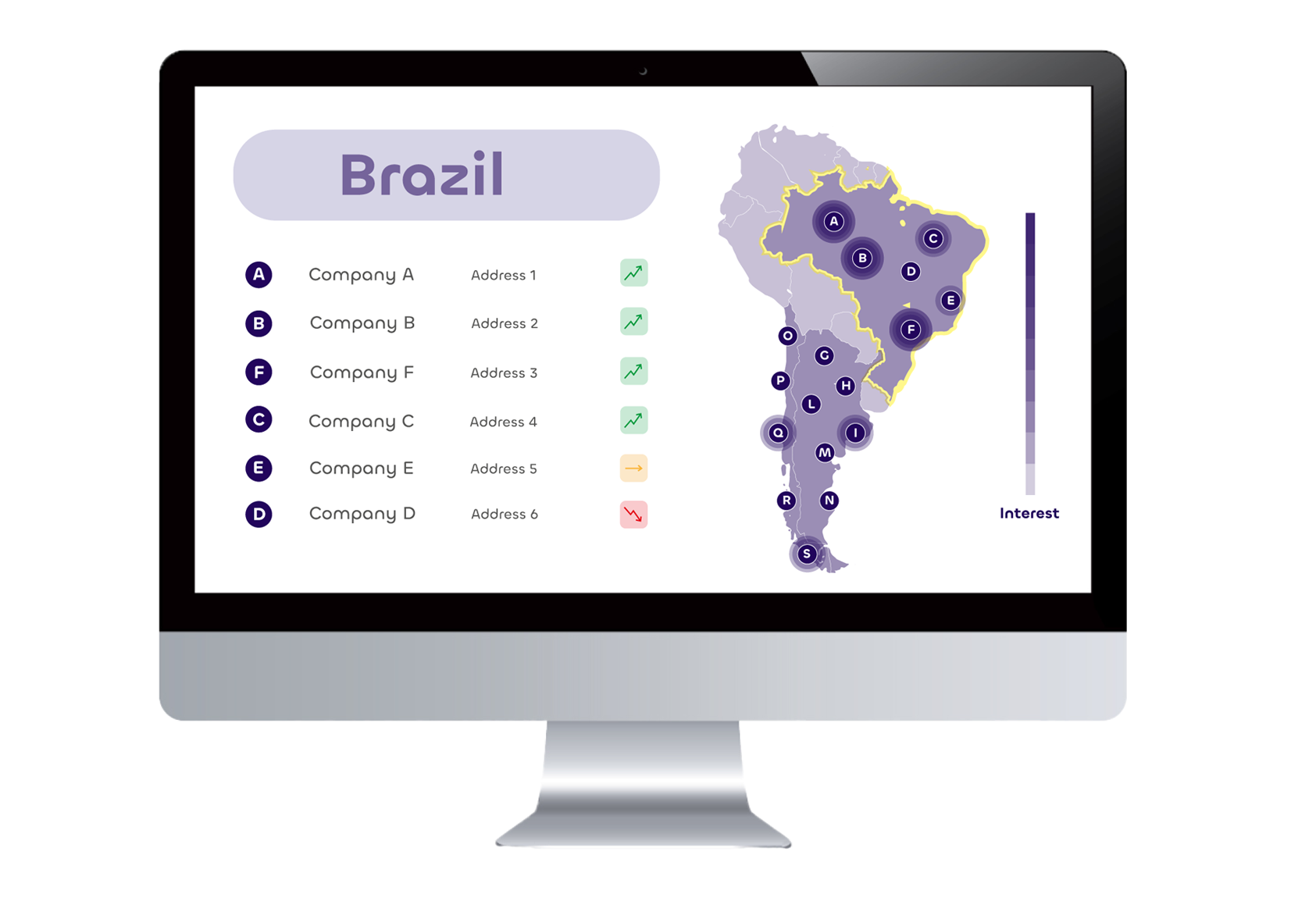In the increasingly competitive landscape of B2B marketing, acquiring and effectively managing qualified leads along the B2B marketing funnel represents a fundamental pillar for the commercial success of any company. However, with the increasing complexity of purchasing decisions and long sales times characterizing the B2B environment, companies face unique challenges in the lead qualification process. In this scenario, adopting advanced Business Intelligence (BI) tools becomes crucial to provide companies with an in-depth analysis of the situation, just as having the resources necessary to navigate the complexity of the B2B marketing funnel successfully.
In this article, we will explore the fundamental role of Business Intelligence (BI) in qualifying the B2B marketing funnel, highlighting its distinctive characteristics, the critical issues of the process without the use of BI, and how this technology can help companies overcome the challenges of B2B marketing and ensure long-term commercial success.
What is Business Intelligence (BI)?
Business Intelligence, also known as BI, represents a set of processes, methodologies, and tools aimed at transforming the raw data companies collect into meaningful and useful information for making strategic and operational business decisions. This process involves acquiring, processing, analyzing, and presenting data in a way that provides a clear view of business performance and market trends. Thanks to Business Intelligence, companies can obtain valuable insights to optimize their marketing strategies, improve operational efficiency, and maintain a competitive advantage in the market.
Business Intelligence is, therefore, not limited to simply generating reports but offers people a tool to examine data, understand trends, and draw meaningful conclusions. This means that BI is more than a reporting tool: it is a means of driving data-driven business decisions, especially in commercial terms, from marketing to sales.
Why use Business Intelligence in marketing
The use of Business Intelligence in marketing integrates naturally into a sales process thanks to its ability to provide detailed insight into customer behavior and the performance of marketing strategies. This practice, which began in the 1980s and 1990s with the development of the first information decision support systems (DSS) and the first reporting systems, has continuously evolved over the years. Initially used for retrospective data analysis, Business Intelligence has gradually expanded its functionality to allow companies to make decisions in real-time and predict future market trends. Today, with the explosion of digital data and the advent of new technologies such as cloud computing, predictive analytics, and artificial intelligence, the use of BI in marketing has become increasingly widespread and sophisticated.
Especially in B2B marketing.
In B2B, Business Intelligence (BI) focuses on in-depth understanding of the complex decision-making processes that characterize the business-to-business sales cycle and are, therefore, part of the B2B marketing funnel. Thanks to BI, companies can better understand each phase of the B2B sales funnel, acquiring valuable insights into the specific needs of target companies, their customers, internal organizational dynamics, and conversion times.
Before understanding how to fully exploit the potential of Business Intelligence to optimize your B2B marketing funnel, we must first understand its main critical issues.
B2B marketing funnel and the main critical issues without BI
To better define the previously mentioned critical issues, we would now take a small step back as if to take recourse. In fact, we would also like to introduce the B2C marketing funnel into the discussion, which is simpler to design so as to make the intrinsic characteristics of B2B more evident. By deeply analyzing the B2B marketing funnel, it is possible to notice two main characteristics that distinguish it from all B2C marketing funnels: the complexity of purchasing decisions and longer conversion times. We, therefore, want to focus on both aspects in more detail to bring to light the nature of these critical issues and better understand where and how BI tools can bring greater effectiveness and efficiency to the B2B marketing funnel.
Complexity in Purchase Decisions
In the B2B context, the purchasing decision-making process is significantly more complex than in B2C. It involves a range of stakeholders within the organization, each with defined roles and responsibilities. Rather than being driven by an individual’s personal preferences, purchasing decisions in B2B are made by a purchasing system that acts simultaneously and in unison to satisfy a business need. This complexity makes the decision-making process more complex and requires detailed analysis to fully understand the dynamics involved.
Conversion Times
Due to the complexity of purchasing decisions in B2B, conversion times tend to be significantly longer than in B2C. In fact, B2B buyers often must go through several steps before making a final decision, such as defining the problem, aligning internal stakeholders, scouting opportunities, evaluating available options, obtaining internal approval, negotiating contracts, and developing the solution choice with the right partners. This implies that B2B funnel marketing requires commitment, patience, and persistence to qualify for opportunities.
Starting from these often consequential considerations, it becomes clear that optimizing the B2B marketing funnel requires an in-depth analysis of complex decision-making processes and longer conversion times. However, although it is possible to intervene effectively, with the right tools, on both aspects, the inalienable truth still persists that these can always be companies that are not ready to convert.
In light of this, the optimal solution for effectively intervening in the B2B marketing funnel translates into a data-driven lead qualification process. A similar approach would allow companies to identify and commit resources to target companies that are truly interested and close to purchasing. For similar functions, we come across Business Intelligence tools for the commercial world, such as VisionSphere.
Business Intelligence to qualify the B2B marketing funnel
As already defined, Business Intelligence (BI) plays a crucial role in the lead-qualification process in the context of the B2B marketing funnel. Through advanced real-time data analysis, tools such as VisionSphere allow companies to precisely identify the most promising business opportunities, thus improving the effectiveness of marketing and sales activities. This translates into targeted conversations exclusively with interested and close-to-purchase companies, optimizing the sales team’s time and resources.
Furthermore, BI allows you to identify an already active purchasing system, reducing conversation times and facilitating more effective interactions with potential customers. These direct benefits are also reflected in several indirect benefits, including: personalizing interactions with leads, optimizing customer engagement across the entire B2B sales funnel and an increase in the overall productivity of the sales team.
So, thanks to Business Intelligence, which materializes for the commercial sector in tools such as VisionSphere, companies can continuously monitor lead interactions and quickly adapt sales strategies based on the data collected, thus maximizing the return on investment (ROI) and improving the overall performance of marketing and sales activities.
Conclusion
In conclusion, the use of Business Intelligence in the marketing context represents a significant competitive advantage for companies, especially in the B2B sector. Investing in advanced BI tools like VisionSphere can be the key to successfully addressing B2B funnel marketing challenges and ensuring long-term business success. Thanks to Business Intelligence, companies can obtain valuable insights, adapt their marketing strategies to changing market needs, and maintain a competitive advantage in the increasingly competitive landscape of B2B sales.





